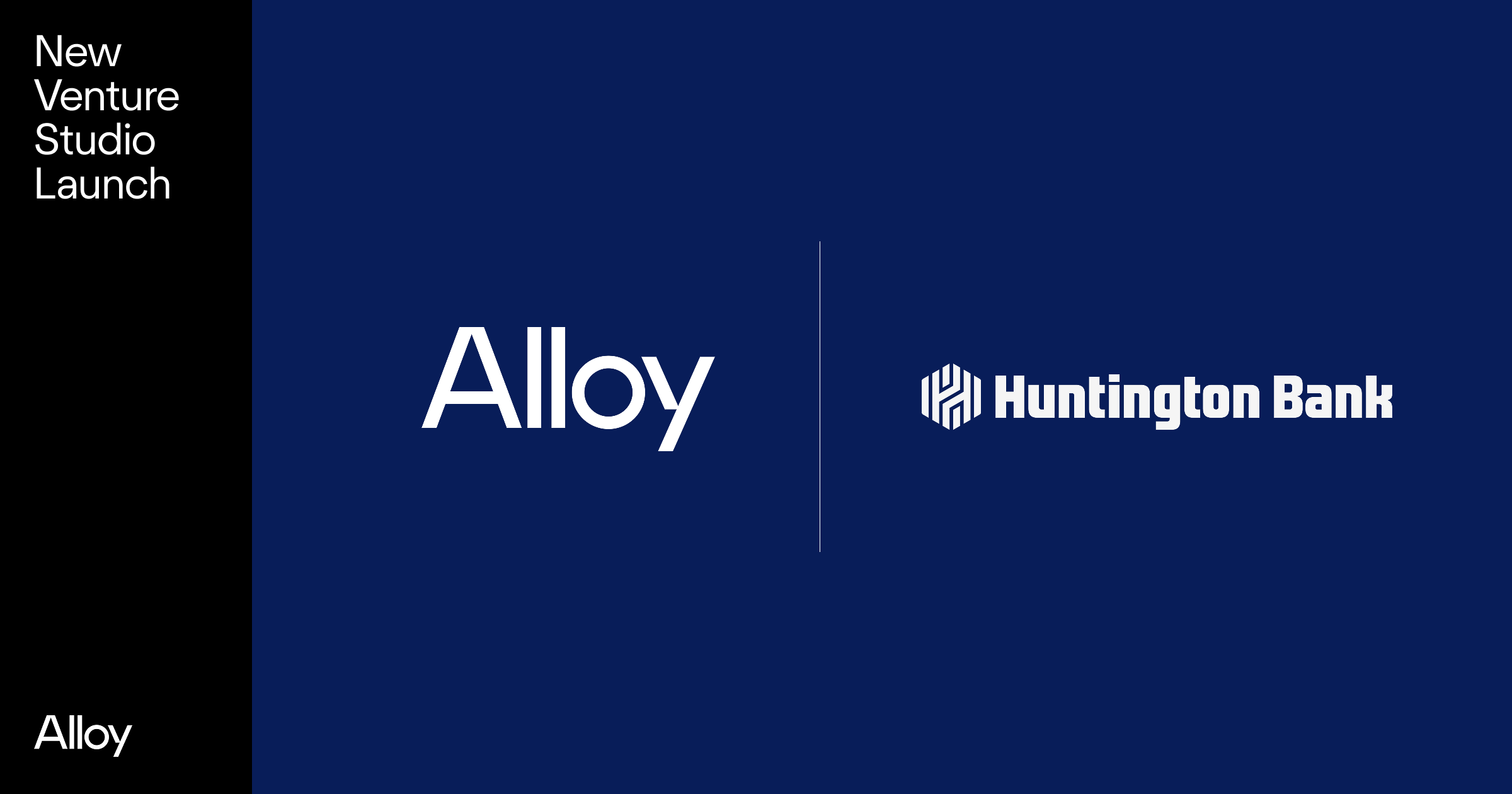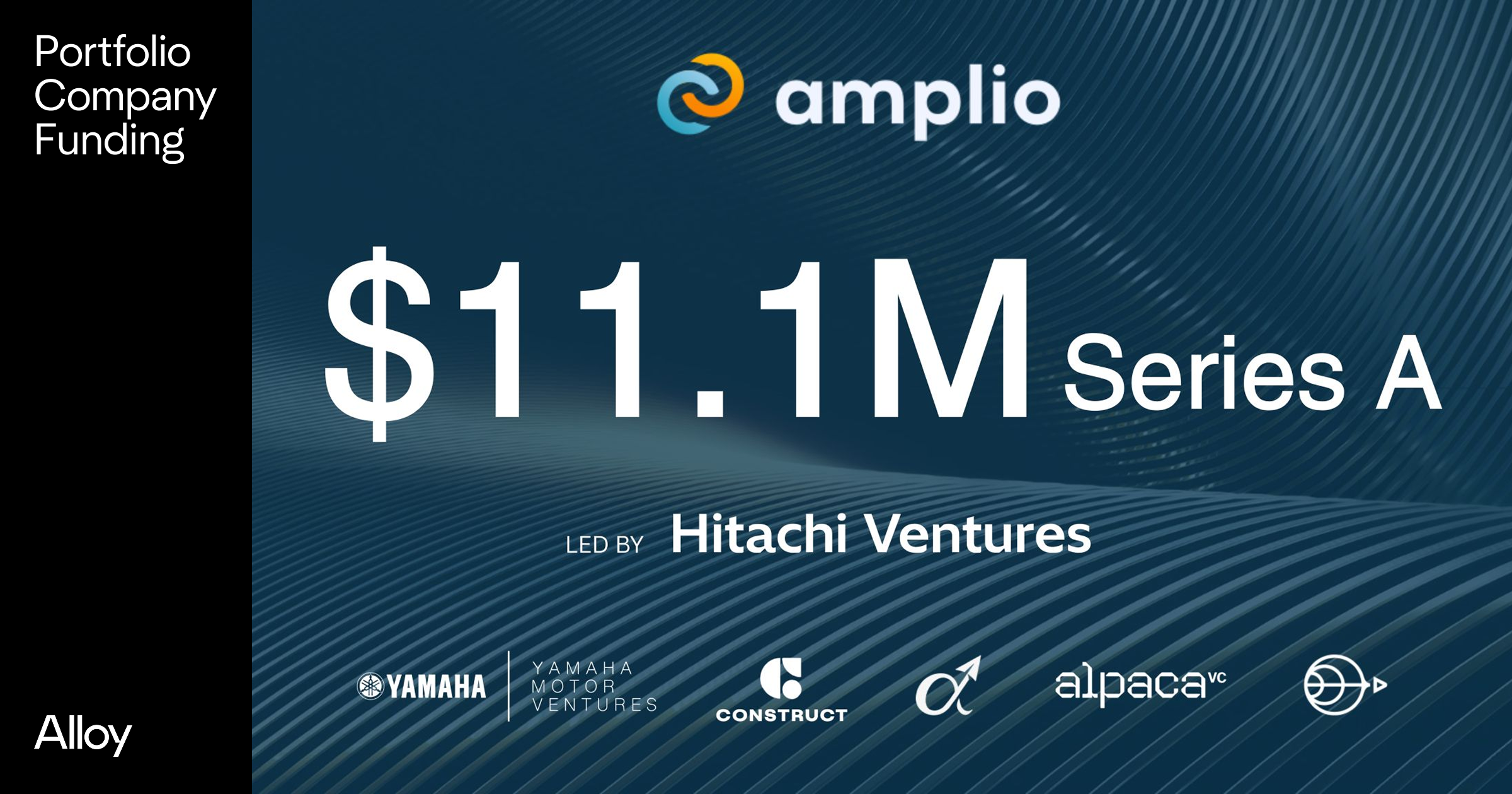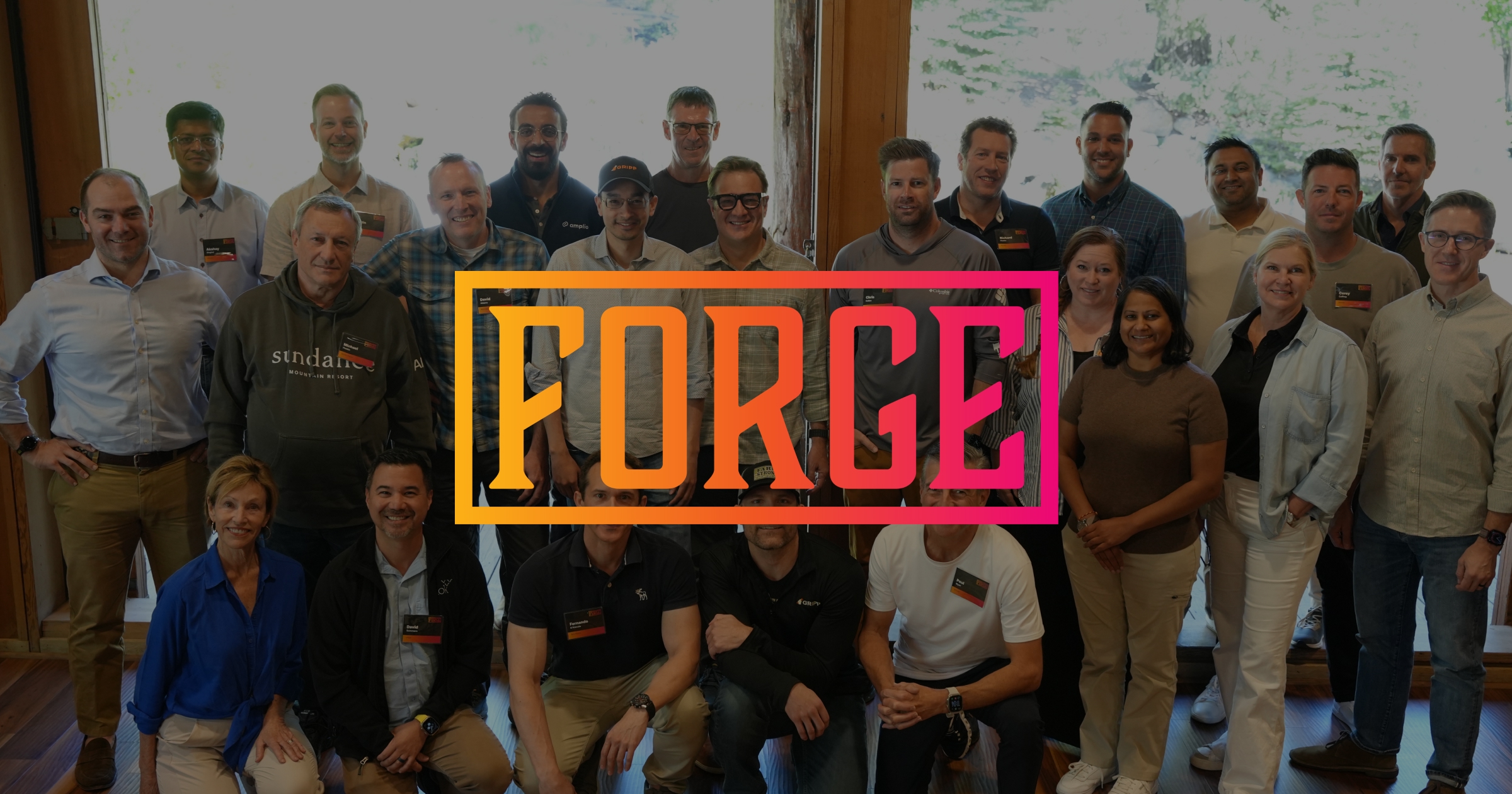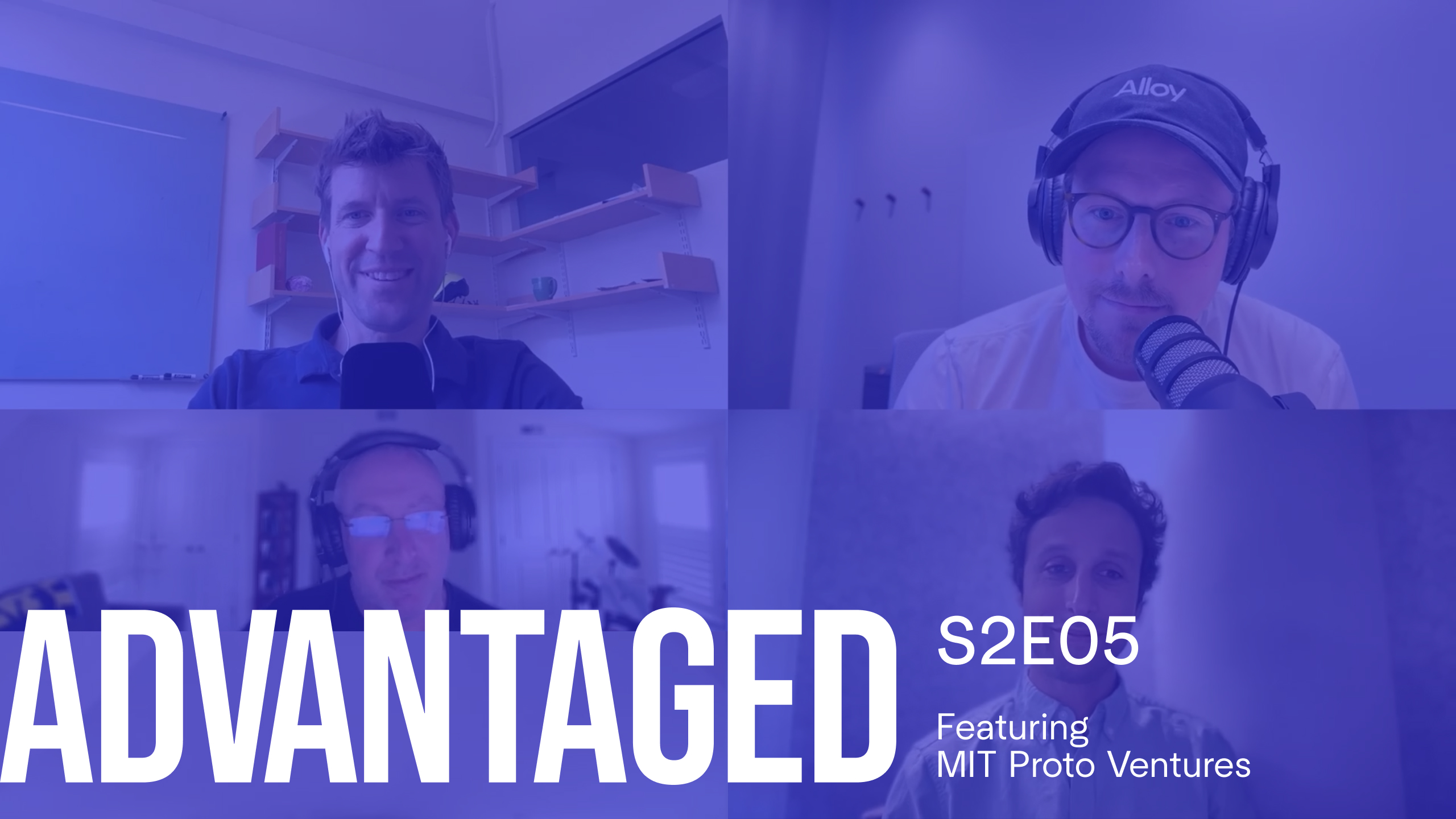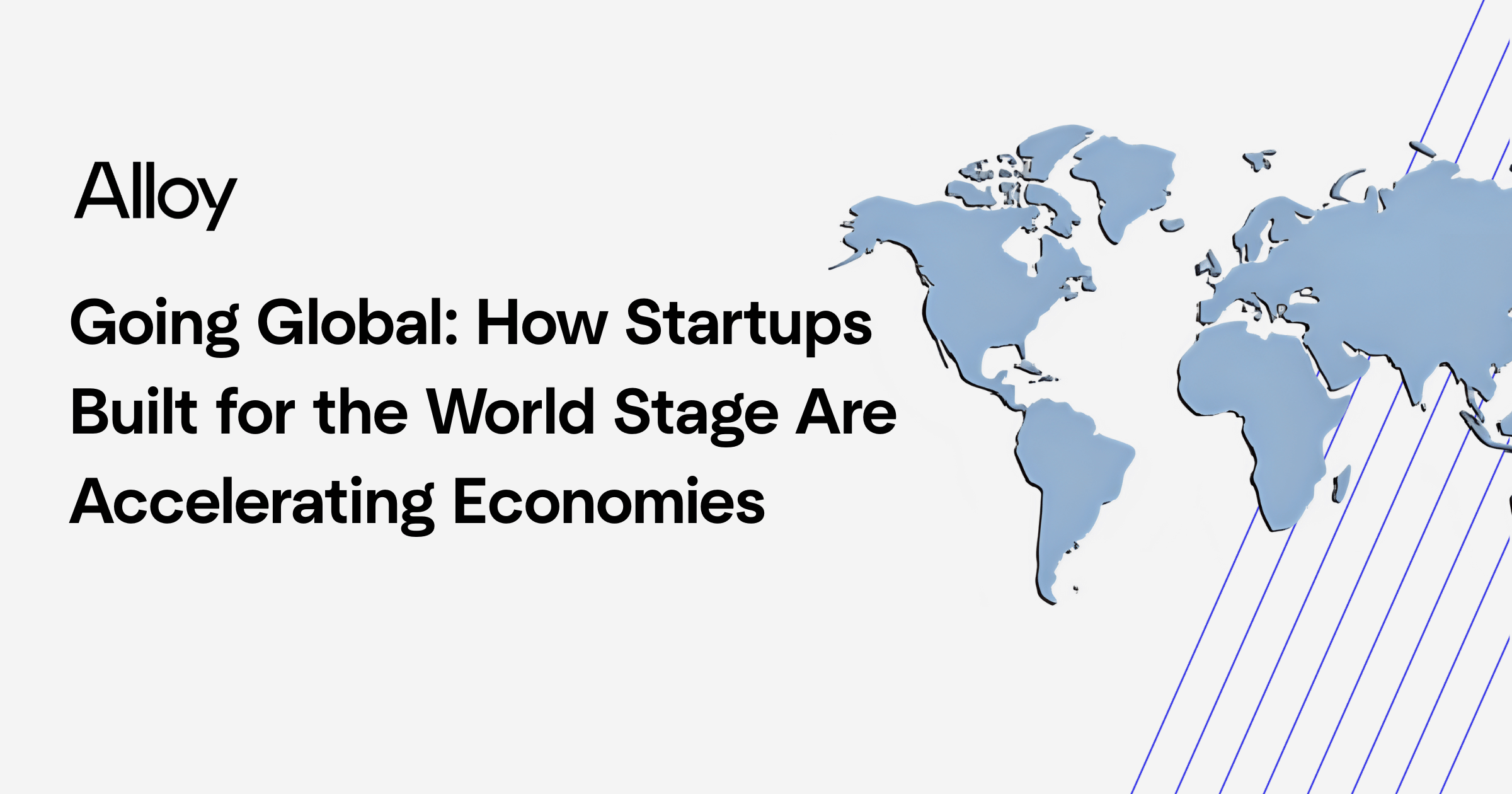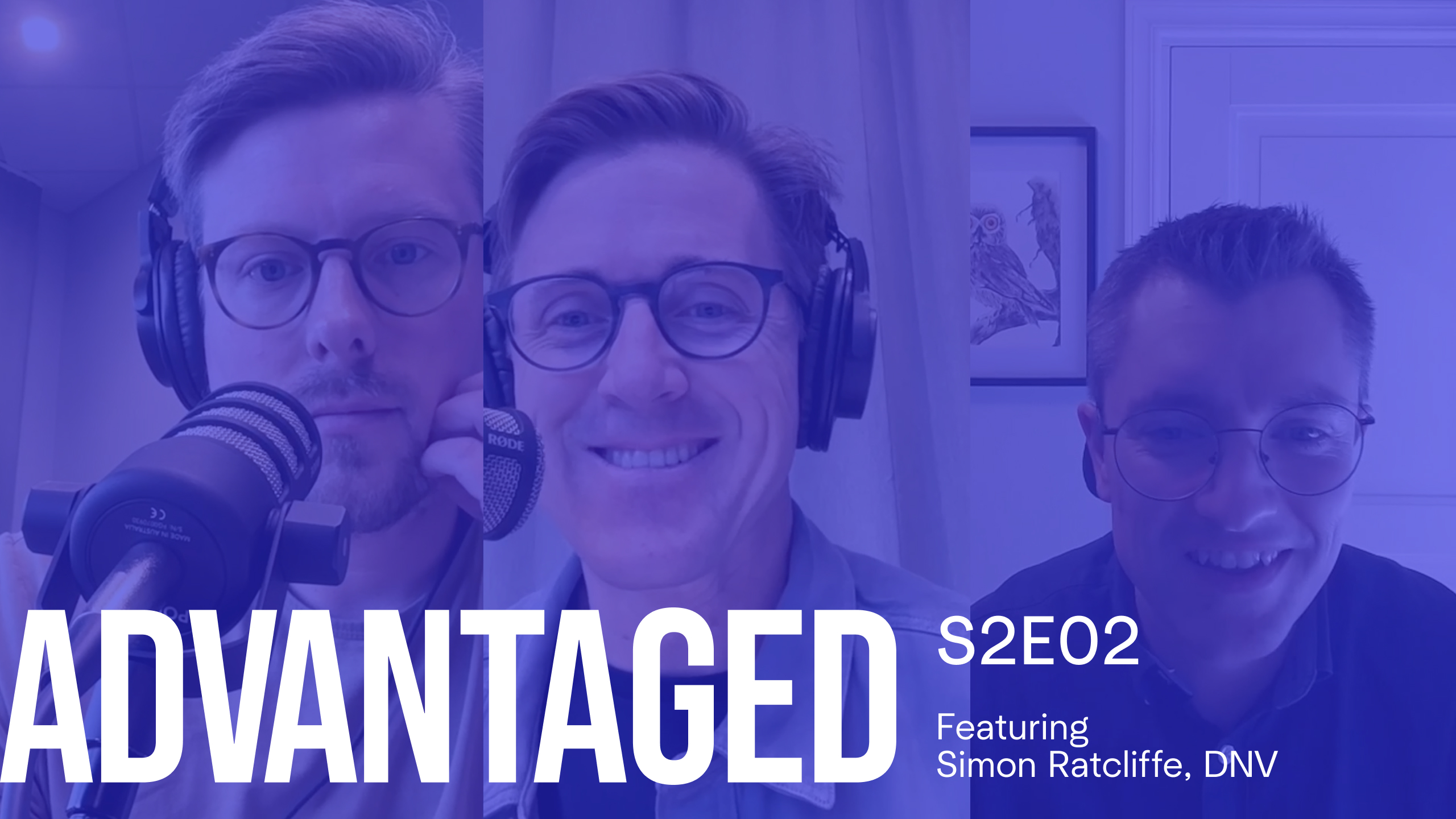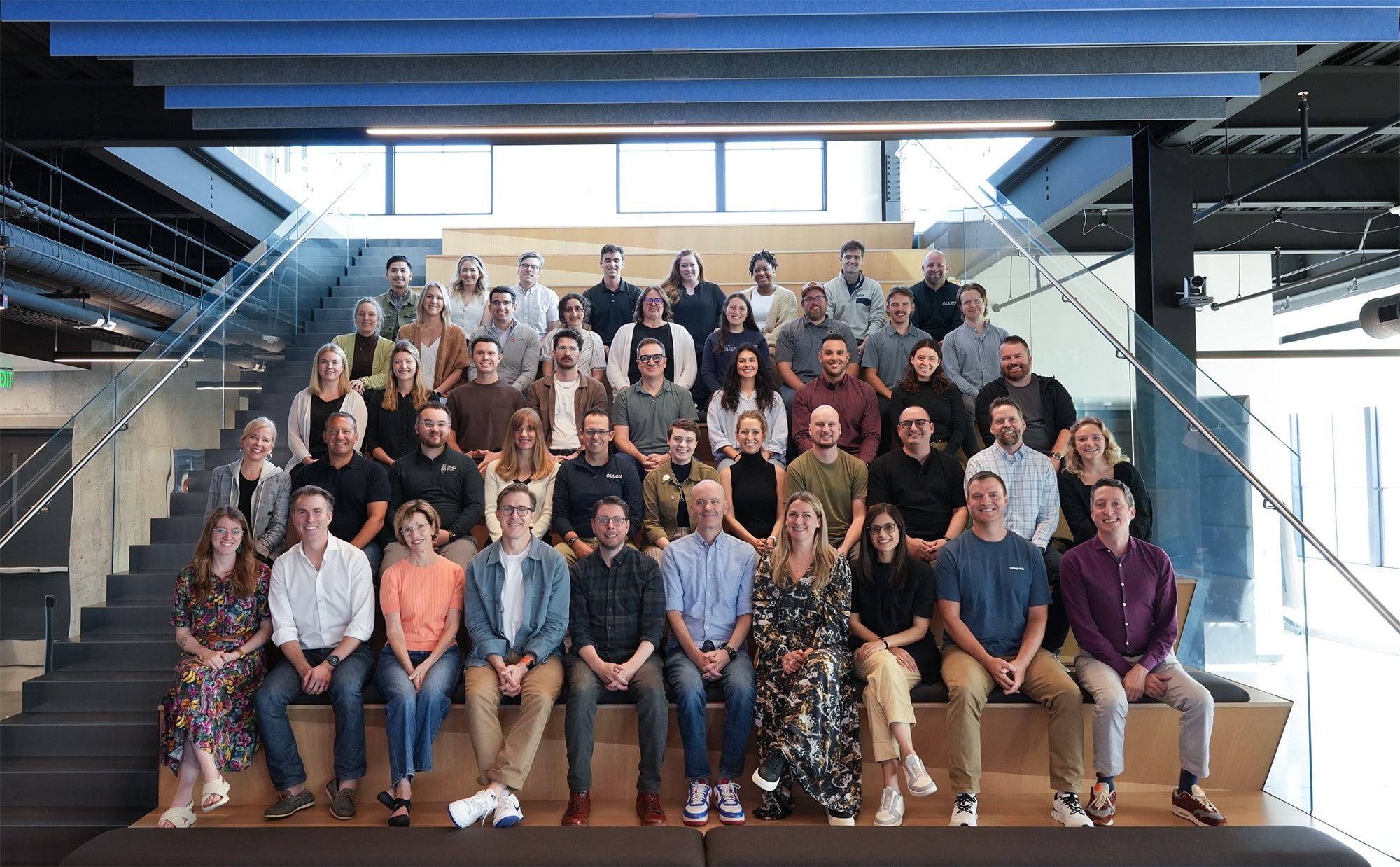The concept of the “corporate startup” is widely celebrated and discussed, but it remains fundamentally misunderstood. My personal opinion is that it doesn't truly exist at all. There is no such thing as a corporate startup. And there is no such thing as an intrapreneur. In a special Advantaged podcast episode, I sat down with our CEO Elliott Parker to dive into lessons from our 10+ years in venture studios and venture building, the common pitfalls companies encounter when trying to build new businesses within their four walls, and why you shouldn't think of internal venture as a "startup".
After a handful of recent developments in the venture building and corporate venturing landscape, we thought it would be a fun time to do a "Frequently Asked Questions" episode to answer questions we're hearing from the market over the last couple of months. We took candid look at what works, what doesn’t, and why so many corporations continue to struggle with innovation that truly moves the needle.
Elliott outlines the two fatal mistakes most corporates make: first, believing they can simply “act more like startups” by copying the rituals and lingo of entrepreneurship; second, assuming internal teams can replicate the true risk, incentives, and independent decision-making essential to real startup success. Instead, we propose a sharper distinction—internal building is best suited to strategic, execution-heavy initiatives, while ambiguous, high-upside experiments almost always belong outside the corporate mothership.
Listen or watch the episode below:
Key Takeaways
- Corporations too often mistake “venture building” for simply launching an internal project under a startup banner.
- The right-to-win for internal ventures is rooted in execution and scale, not experimental learning—a mismatch that leads to frustration and failure.
- Only a small minority of ideas are suited to become true external startups, and they thrive only with the risk/reward structures and autonomy found outside the corporate core.
- Incentive structures, team selection, and governance models must be intentionally designed, not imitated.
- The current environment—with falling costs, smaller startup teams, and sharper corporate focus on value—is one of the best in decades for external venture creation.
Ready to move beyond innovation theater and build real ventures? Explore more and subscribe to Advantaged, the leading corporate innovation podcast, for new episodes.
Referenced in the Show
- a16z partner's tweet on “no such thing as a corporate startup”
- Wharton & Mack Institute Corporate Venturing Report (2025)
- Indie.vc's Bryce Roberts’ “one-person billion dollar company” thesis
- It's not quite a "billion-dollar one-person company", but the Indie.vc website says:
We’re obsessed with the idea that someone is going to build a business doing $100M in revenue with less than 10 employees and see it as this generation of founders’ 4 min mile. Once someone shows it can be done, many more will follow. We want to partner with the one that does to help define a repeatable playbook for those that follow.
- It's not quite a "billion-dollar one-person company", but the Indie.vc website says:
- Google/Alphabet Acquired podcast episode
- The Price of Time (book)
- Founders Podcast
Full Transcript
The full transcript below is unedited, so excuse any typos or errors.
Drew Beechler: Welcome everyone to Advantage, the Alloy Partners podcast where we are exploring frontiers of venture building, venture studios, I am Drew Bechler, our VP of marketing here at Alloy Partners. There have been a lot of developments recently in the venture building world and the startup world and the markets generally, and so today we decided to take a little different approach than our standard episode.
And instead of our usual interview with an external guest today, Elliot and I are just sitting down for a candid discussion on some of the most frequent questions that we're hearing from clients in the market trends we're seeing in the market lately in order to share some of our perspectives on these.
So thanks for sitting down with me today, Elliot. This is gonna be a fun conversation.
Elliott Parker: Yeah it's, it'll be fun.
Venture Building and Venture Studios
Drew Beechler: let's start with just the state of Venture building and maybe even venture studios as a whole. As I was reflecting back, it's now 10 years almost to the date from when at least I started working at High Alpha.
So 10 years myself and thinking about and working in. Venture studios and so at least a decade now of this type of model that we've been operating out of collectively. And so I'm just curious from your perspective as well, just a conversation around what have we learned now 10 years in and where do we stand today in this state of building new ventures through this Venture Studio model.
Elliott Parker: Yeah. It's pretty amazing to see what's happened in the last decade, huh? If you think about high Alpha started what, 2014 2014. 2015. 2015, early 2015. And at the time there wasn't a word for this. Kristian Andersen, our friend at High Alpha, came up with the word venture studio and it is astonishing to see that there are over by some counts, over a thousand of these entities around the world that now call themselves venture studios.
And so it's been I think it's been fun for all of us who have been involved in the high alpha ecosystem one way or another for the last decade to, to play a part in this kind of burgeoning. Asset class.
Drew Beechler: one of the things to me I thought was really interesting to see was Vault Fund their, Genesis and the conference they run every year now, the Global Takeoff Summit, and I don't think this is the first year that they've done it, but Ryan on our team was out there this year.
And just the fact that there's a conference that's all around. Capital allocators around venture studios and the, it's becoming a real industry as a capital asset really. Which I think was something that we only probably dreamed of 10 years ago of defining this category within private equity.
I think we've learned quite a bit over the last 10 years, both in how to make companies successfully and I think we've seen the growth, and especially like internationally, just so many studios and people using this model to.
Grow entrepreneurship broadly, and And then lots of different flavors, I think whether it's universities like MIT, proto Ventures that we had on the podcast that we talked to a handful to corporate venture studios as well that where we focus all of our time and efforts on.
So maybe just from that perspective as well, Elliot, how. On the corporate venture building side of things, where do we see the industry today, which is also, relatively new.
Elliott Parker: Yeah, I think the, the Venture Studio model still holds a lot of promise in terms of what over the last decade it's and longer, right?
You gotta go all the way back to the last century with Idea Lab and others running a version of the model. It's been around for a bit and we've all learned a lot and we've learned both. What makes venture studios successful? What also what leads to their failure? And as you point out, I think you see a power lock curve in venture studios, just like you do in startups and in venture capital firms.
You've got success concentrated out around a small group of winners and then a long tail of of studios that are trying to figure it out and I hope they can. I think the thing is that the world needs more entrepreneurs, more models of entrepreneurship. that, enable more people to go start companies and be successful.
So the experimentation is fantastic and I hope in a few years there's 10,000 versions of studios and that far more of them are succeeding. And um, you know, when it, it comes to the corporate side and corporate building, I guess it's seven, eight years ago now when we were at High Alpha, we started experimenting with.
Launching startups with corporations because we saw that the corporations have fantastic insights into what should exist in the world in their industries. They know where the problems are, and because of reasons the innovator's dilemma, they sometimes have a hard time acting on them. Startups are really good at learning and can go pursue some of these problems and develop novel solutions really fast.
So we're seeing more and more corporations turn to venture building as a tool in the toolkit. And in, in the past, that often meant building ventures or new businesses internally inside the corporation. What a lot more corporations are realizing is that the the incentive systems, the governance systems, the way that we make decisions inside a corporation just are not set up to build new ventures successfully.
And a lot more are now looking at at launching Ventures externally as a way to go learn quickly. And we're that's why we built Alloy. We saw the opportunity there as venture builders to go build a lot more companies to do it more successfully because of the contributions of the corporations that we partner with.
More ideas, more access to capital, more. Access to customers for the startups, for exit pathways, for the startups that we build and on.
Drew Beechler: we're seeing just many more companies adopt the model or at least look at the model or some version of the model. I'll put the link in the show notes as well, but there's a 2025 corporate venturing report by.
Wharton and the Mac Institute at Wharton saying 23% of the world's 500 largest corporations on the Forbes Global 2000 list are now pursuing venture building. And to your point, I think a lot of corporations are waking up to this idea. And this leads us into the next topic and question really I wanted to hit on and spend a lot of our time today talking about, but I think probably a lot of that 23% are.
Taking maybe the wrong approach and this idea of kind of the internal startup, the corporate startup. And last week an a16z partner tweeted something out that we were sending around internally as a debate around how we felt about this. But but he tweeted out, and I'll share this in the links as well, what he tweeted out is there really quote no such thing as a corporate startup end quote what does that mean in practice for a corporate trying to innovate?
And we've just been talking about this a lot internally last week and about why internal startups. Don't really exist. There is no such thing as a startup inside a big co. And you, I think, have some of the strongest beliefs around this. So maybe I just wanted to let you share, so how, when you read that kind of, what were you thinking?
You've written an entire book basically around this concept as well.
Elliott Parker: Yeah. I saw that tweet and thought right on. Yeah. There is no such thing as a corporate startup. Absolutely. And I think he went on in that tweet, if I remember right, to say that until you've, you some version of, until you've felt.
Personally, the terror of having to make payroll, for example, as an entrepreneur is just such a different thing. It's such a different thing. Now, it doesn't mean that corporations can't build new businesses internally. Of course they can. That's how companies grow. It's just part of doing business.
It's just what you do. Where they get tripped up and where they make mistakes is thinking that they are startups, those internal ventures or new businesses they're building. We I see two forms of mistakes in corporations. One is the broad push across a corporation to quote, act more like a startup, right?
Sometimes you'll see CEOs of these big companies say, we need to act more like a startup. We need to be more agile, move faster. Absolutely not. That is a terrible idea. Most startups fail. You don't want your large corporation to fail. Corporations have a very different set of. Of skills and competencies than a startup, and they should lean into the things that they're good at, not try and mimic the things that startups are good at.
Startups and large corporations are good at different things. That's one mistake. The other mistake is what I alluded to, where you see corporations coming up with new ideas, setting aside a team saying you're gonna go build a startup inside the corporation. It's fine to build a venture, but to think of that, that it's gonna be able to operate like a startup is going to lead to frustration, sadness, and likely failure.
Corporation just doesn't have the right incentive systems in place it's a different kind of talent that does that. Inside a corporation then you might see an, a venture-backed startup, for example. It's different way of making decisions inside a corporation. We're making decisions by committee, rightfully that's how you manage a large corporation effectively, to be capital efficient and safe. And none of that works when you're doing a startup or something, a venture that really pushes the, the boundaries of what the corporation has historically done. That's why we think startups external for those types of things that are so new and different that they really need to be done outside the corporation for that reason.
Drew Beechler: Yeah. No matter how you structure it internally, no matter how you, the rules you give it, or the confines or, the internal governance or whatever it cannot truly be a startup. we were talking about this as well, but I also have this allergic reaction to the word intrepreneurship or intrepreneurs.
And people who describe themselves, as, oh, I'm a intrepreneur building new startups. And it just doesn't even compare.
, Or it's like, unless you're leaving your day job, putting it all on the line to be an entrepreneur. It's a completely different ball game. It's not a real startup. It doesn't live and die by its revenue numbers, its ability to raise capital.
It's just a whole different, it's a different game.
Elliott Parker: Totally different thing. Yeah. When Peter Thiel has a great definition for startups, he says it's a startup is the largest group of people you can convince of a plan to build a different future. I think it's a great definition for what a startup is.
of, based on that definition, in theory, you ought to be able to launch startups inside a corporation. But the truth is inside of a corporation. I think where the new ventures fall short and thinking that this is a startup is that you you are working under a false assumption that about the number of people you've actually convinced to build that different future.
Inside a corporation, often it's a cracy where any one vote can kill a thing. You've got a lot of people who will look for opportunities to retrench, to safety and what's worked before. And the second, the thing falters and that's why it's not, it's just a different animal and needs to be, you gotta apply different rules and approaches to it.
Drew Beechler: But you said, you mentioned yourself as well. There are times when building a new, internal product, internal business line, internal unit. Is successful? when should you look internally versus when should you look externally?
Elliott Parker: Yeah, 100%. And I've built my career, built what I consider lots of successful ventures inside of corporations.
And I think the ones that were most successful were, when we recognized that these aren't startups, we are gonna leverage the assets, resources, capabilities, competencies of the corporation to make this thing work and to beat the startups that are trying to do this outside. With corporations, we often look at new ideas when we're partnering with a corporation to look at opportunities to go build new startups. We focus entirely on building external startups, but along the way we'll generate lots of ideas. And what I found across our work over the last five years plus is that maybe 80% or so, of the ideas that we'll generate along the way are things that the corporation should go pursue internally.
Maybe should pursue through partnership with somebody that's already doing a version of the thing. It's only maybe 20%. It's definitely the minority of ideas that we come up with are things that that really fit the mold or should be built as an external startup. So the question then arises when internal, when should we build internally versus when should we build externally?
At a high level, the answer for me is if it's something that is strategically critical, meaning the future of the corporation, depends on the success of this venture, you probably want to control that and do that internally. On the other hand, if it's only strategically interesting this might turn out to be big.
We just don't know yet. That's gonna be better done outside. That's a high level one, one criteria. We look at it. Another one that I think is pretty important is comes down to the nature of the problem that you're trying to solve through the new venture. this is dramatically oversimplifying it, but corporations are really good at execution, at scaled execution.
In fact, global scaled capital, efficient execution. That is what they're designed to do. And so if you have an execution problem, and by that a problem that you look at and say, we know what to do. We know what the solution is, we just need to go do it. A corporation's gonna beat startups at those types of problems every day.
Now on the other hand, if it's what we call a learning problem where you know what the problem is, you're not sure yet what the solution is. In fact it's ambiguous. You've got some ideas, but you're not sure what's gonna play out. Startups are really good at learning. They're really bad at execution in a capital efficient way in the way corporations are, but they're really good at learning.
So you, you have to do a triage up front and say, is this a an execution problem or is it a learning problem? And send it through their the right channels for success.
Drew Beechler: Another thing I've heard you say is. the level of fidelity that you can create. The proforma basically of this idea also is correlated with, should this be an internal venture or an external venture?
Yeah. The, and it's back to the what level of execution are you looking at in, in is this interesting or, just in something that we're trying to explore and we wanna learn really fast, or is it just an execution problem?
Elliott Parker: It's a great test, and you'll see this all the time. You'll see somebody in a corporation that's been asked to build the new thing, right?
And the, one of the first questions they're asked by the finance team is. Okay. Submit your your forecast for the next 12 months. So we did, we know how much budget to allocate and that, that is not a bad question to ask. That's how the corporation makes decisions and they're looking at scarce resources and how to deploy those and they're comparing this new venture against.
Marketing spend or something else where there's a clearly defined ROI. So naturally they're asking the person who's tasked to build a new thing, what's your ROI gonna be? What type of return are you gonna produce in the next 12 months? That is an impossible question to answer. Yeah. When you're building something that's never been done before.
And so that there there is a good test. If you can build a 12 month forecast that predicts with a pretty, a decent degree of confidence, what's gonna happen? Then you're dealing with an execution problem and the corporation's really well equipped to do that. If you get asked by the finance team to build that model and you feel like you're making something up and you really have very little confidence in the numbers and how it's gonna play out, chances are that's a learning problem and that thing's gonna be better pursued or pursued more effectively by a startup with well incentivized entrepreneurs than it is within the corporation.
The State of Corporate Innovation
Drew Beechler: I think that's such a great. Litmus test. Something else that we've been seeing specifically over the last handful of weeks and really the last couple of years We've seen movement in our industry with some firms shutting down or corporations winding down their venture building programs, winding down their venture studios and sometimes the question. That we get asked from the market or for, from others, or just proverbial even is venture building dying, what does this mean for the industry? And so I'm curious, Elliott to hear your response to that and what is the state of the industry and the reception from the market today.
Elliott Parker: Yeah I maybe have a controversial view on this, but I don't think corporations should hire external consultants to build internal ventures. That is what the corporate executives are there to do is to grow the business and the who better, who's better equipped or positioned and to build that new thing than those executives.
and now there are exceptions to that, to be clear, right? Maybe there, it's just a capacity problem and you've gotta outsource some things. That's fine. But I think what we've seen over the last few years is, that a lot of that big spending that corporations have been doing on outside consultants to pursue internal venture building doesn't pan out.
It doesn't produce a return because a lot of those internal ventures fail for the reasons that we were just discussing. And so I, I think that number one, that's important to note. If it's something that really should be built by the corporation internally, the corporations really should be equipped to do that.
And if the corporation can't do that on its own, it's important to ask the question why not? Something's gone wrong in the corporation. I think when it comes to internal innovation teams that include sometimes venture building coming out with new product services those, what we're seeing right now across the market is pretty remarkable.
I've been involved in corporate innovation one way or another for the last 25. Plus years, and this feels like a different moment where you've got innovation teams getting shut down budgeted budget's harder to access. It feels like you go to the innovation conferences these days and there's a lot of people there, a much higher percentage of the people there are looking for their next role.
Rather than trying to figure out how to get things done and. This feels different this time. You've, you've got AI that is, is pushing everyone to be more efficient. You've got macroeconomic uncertainty over the last year and innovation teams are feeling the brunt of that. It doesn't mean corporations don't feel the need to innovate.
They still do. And for us at Alloy, this is where we, I think we can be really helpful to the executives who are still trying to figure out how to innovate in a. A market where a lot of the stuff that they've tried hasn't produced the results they wanted. And where they may not even have an innovation team or budget really left specifically to focus on innovation, what do you do?
And our response in many cases is you need to go run a lot of experiments and you need to do it fast, cheap, and weird. As we say all the time, startups are fantastic experiment engines. And you can do it in a capital efficient way. In fact, you can do it with other people's capital if you do it right.
And so it can be a really efficient way to to go try a bunch of things and to see if you can produce a better return on that balance sheet capital than some of the other options that a corporation might have.
Drew Beechler: And so these are some of the headwinds I feel like we've been seeing probably to corporate innovation as a whole.
But at the same time, I feel the tailwinds around startup creation, entrepreneurship, innovation, broadly have never been stronger. So how are you feeling around, I think we talk about often of like right now is the best time ever to create new startups, and do you feel that way still?
And why are we feeling that way internally?
Elliott Parker: Best time ever. What an amazing time. We are just change is opportunity and we're living in a world of change, number one. Number two, it's a lot easier to start companies than it's ever been. Yeah. In terms of access to capital expertise, knowledge networks we see in the trends around the size of how big the teams are that are launching new companies those the the team size of new.
Ventures is decreasing every year, and it's interesting to plot it out. Eventually gets to a point where you've got one person companies, maybe even zero person companies run by computers. Who knows? But that trend continues to go down. The amount of money required to start a company is al also going down on average.
And that is amazing. It means that a lot more people can be entrepreneurs and the the world needs them. So it's a great time.
Drew Beechler: Bryce Roberts, indeed vc he has this theory around a one person billion dollar software company. And I can't remember when he published this, and I'll have to find it and share this, but ever since I heard about that hypothesis, and particularly in kind of the AI age that we're living in, I.
I can't wait to see that. Yeah, a billion dollar software company. It's probably out
Elliott Parker: there already. There's some 15-year-old kid who's built the thing that will become a billion dollar company. Just don't know it yet. Yeah. Yeah.
Drew Beechler: It's wild. this was a question related to a lot of this external ventures.
We got this recently as well from some of our friends at Innolead that someone had asked them, what is state of the art today for setting up new ventures around governance structure, investment capital team, which we talked about of smaller teams. What are we kind of sharing when we go into talking with partners around venture studios and new companies?
We're creating around the best way to set these up and not to say that every time we set up a company everything has its own unique version, but what would be the best way that we're seeing new ventures being spun up today, particularly within this corporate venture building and corporate venture studio model?
Elliott Parker: Yeah, such a good question. The reason why that question is often asked is because people are banging their heads against the wall inside a corporations trying to figure out how to merge the corporation with what they see in venture world.
Drew Beechler: Yep.
Elliott Parker: And trying to force fit a, a square peg into a round hole.
And so as a result they're making trade-offs, right? If you look inside a corporation, when you're launching new venture and you wanna, let's say you want to access entrepreneurial talent, real startup talent, we hear this all the time. How do we get better talent into our corporate ventures?
And usually it's an incentives problem. And inside a corporate venture, what happens is we cap the incentives for that. Entrepreneur building the thing or the entrepreneur. As you mentioned, the in the incentives are capped at both the high end and the low end. Meaning if this succeeds we will pay you well, but you're not gonna make more money than the ceo.
OI mean, come on. We can't do that. And then on the low end, if the thing fails, you've still got a job here and we'll figure out your next step. And that capping of incentives is really well-intentioned. But it produces a smaller band of outcomes, a narrower band of outcomes, where in traditional venture you've got an entrepreneur who if the venture works may never have to work again for the rest of their life.
That's super incentivizing. And then similarly on the bad side of the scale if the venture doesn't work out, they may not be able to pay their mortgage in a few months. That is also. Very motivating to certain types of people, and that produces a much wider band of outcomes that is more likely to lead to the kinds of results and surprises that corporations are actually ironically looking for when they set these up.
And so my message to corporate executives who are trying to wrestle with this question, how do we build up a venture building, a venture system that that kind of takes the best of venture, best of corporations? My answer is you do not have to try and imitate it. You can just do the thing.
You can do exactly what has been proven out, tested, and working in the venture ecosystem for the last 60 years. You have venture backed startups being formed. The whole way that venture capital works continues to evolve and granted needs more evolution, especially right now. But it's pretty darn good.
It's been refined to do a specific thing, which is to find and discover new opportunities in the market and exploit those opportunities in a way that creates and captures massive value, does so fairly quickly. So there is a system that's already been designed to do that, and our message to corporations is you can.
You can use that exact system. You don't have to compromise. So in other words, by building external ventures, you can do it with the right governance in place with the right incentives, the right access to talent, with the right processes that are used by venture back startups all over the country.
You can do exactly that. You don't have to you don't have to try and get as close to that as you can. The trick is getting upfront ensuring that your executive team understands why you're building ventures at all. Getting aligned on that. What are the hoped for outcomes? Making sure you've got that and we see a lot of corporations get that part wrong, and as a result, the rest that kind of flows from that ends up being wrong, too likely to lead to failure.
Drew Beechler: double click into that as well. I think that's often a common question as well, is how should they set those up and think about it from the beginning.
Elliott Parker: Yeah. What we'll often see in terms of just objectives and goals is corporate executives will come to us and say, Hey, we've got a, we've got a half a billion dollar revenue gap that we've gotta close in the next three years.
And so we've set up a team to go build some new ventures internally and. And that that, that is a crazy thing to say and to expect that you're effectively, you've got a team of half a dozen people at most inside the corporation who are gonna go build the next Google in three years.
Like in terms of revenue traction. It's just not realistic. And so venture building, it turns out, is a really poor way to augment your revenue if you're depending on the new ventures that you're building to directly create the revenue. If you want revenue, there are other ways to do it as a corporation, right?
Go do bolt on acquisitions do geographic expansion. So on venture building can be a really powerful tool for augmenting revenue. You just have to recognize it's gonna be indirect, meaning you're gonna go build a startup. Externally, ideally, that's gonna produce so much learning and open up so many new paths, partnerships opportunities, new ways of thinking about doing things that you can plug back into that corporation, that $50 billion corporation and and grow that.
It's an amazing lever. It's much easier to grow a $50 billion corporation to 55 billion than it is to build a startup that goes from zero to 5 billion in two years. So that that, that is what matters a lot. So then the question is what is venture building good for? Venture building is really good for learning quickly and for building strategic optionality.
You think about the job of A-A-C-E-O who's tasked with inside a corporation, who's tasked with making sure that corporation endures, continues to produce societal surplus and including first and foremost good returns for investors. They wanna make sure that corporation lasts a long time.
And the way that you do that is you prepare the corporation for future problems that might arise that you can't yet predict. You do that you prepare by gathering as much wealth as you can into the corporation to be prepared and as much knowledge as you can about the way the world works so that you can be better prepared.
And the way that I think about it, again, this is very oversimplified, but, and there's lots of overlap, but at a high level, the operating business is designed and optimized inside a corporation for creating, generating wealth. It's the innovation team or that venture building arm. That their job is to go out and build the knowledge that can then be plugged back into the core business to generate more wealth.
Where a lot of these efforts go awry is when they they conflate the two and the corporate executives ask that innovation team or the venture building team to go generate wealth go create a hundred million in new revenue in the next 12 months. That is not their job. Their job is to go generate knowledge that can be plugged back into the amazing lever.
This huge corporation to produce results in the near term.
Drew Beechler: Yeah, that's a great way of thinking about it and just changes the perspective of where you're pointing your efforts as well.
Elliott Parker: Yeah. Yeah.
Drew Beechler: As we wrap up here, I had a couple of quickfire questions. These are things I just always enjoy to hear from you, so I'm curious if you had something that you would wanna share with our listeners and one.
Question is favorite book or podcast that you have been coming back to or that you've been reading or listening to lately?
Elliott Parker: Oh man. So many been on a history kick lately. I've read a couple of fantastic biographies on Henry IV and then Henry the Fifth. You can learn so much from great leaders in history and what they did, both amazing individuals.
Those are great biographies. Red one on the, the history of interest rates recently called The Price of Time. Oh yeah. Fantastic book for understanding the macro economy and the way it works and how we got to the world that exists today. Just learned so much from that book and so yeah, I always a big fan of the Founder's podcast.
Of course, shout out to David Senra and what he's always doing with that. Every single one of those, every while I see that show up in my feed, I'll instantly put it to the front of the queue and see what's going on. Those are great.
Drew Beechler: That's great. I. Kind of friendly podcast or the founders podcast, the acquired podcast.
They just came out with their Google part two. Oh, good. And this was maybe a couple weeks ago. So good. In the alphabet episode in particular to our business. I thought it was so good of like their discussion at one point around like Google reinventing themselves and how many business line units that have a billion users, five, six or something like that.
And their ability to jump. Technology waves as well. It was just very pertinent, I think to our business of kinda, most of the time we're working with corporations that it is impossible, for you to do that. And there's not many that, that really have been able to do that.
And Google has successfully done it across a handful, which is very wild. But that episode is really great.
Elliott Parker: Yeah. Yeah, I agree.
Drew Beechler: And then thi this may be, you may not have something that comes off the top of your head, but something that we're always thinking of new startup ideas, new business ideas.
Is there any kind of request for a startup that you would put out into the world of, I wish that something could do X, Y, or Z for me, or, I really have an idea for this. Is there anything that, that you've been thinking about lately in that va in that vein?
Elliott Parker: As one of the most amazing parts of our job, so what we do is we get to look at problems across all kinds of industries and so many fascinating problems.
I've just, in the last week, I can think about I've been looking at ways to solve the problem of urban food deserts. Like ways that really work that are venture scale. Possible businesses been looking at opportunities around automation and meat processing both in the robots that do the work as well as up and down the value chain.
How you make it easier for those things to be automated. We've been looking at, in the pharma industry, How do you change the power dynamics in that industry? So it works a little bit better for everybody?
So we, all kinds of interesting problems we're looking at in depth and, yeah. If anybody's got great ideas for startups in any of those areas, we'd we'd love to chat. We're looking at a bunch too here, coming up soon, the convergence between plant, animal, and human health.
That can be everything from looking at the health of soil and how it impacts plants, human animal health to overlaps between food is medicine. All kinds of opportunities in that space we're considering to. So yeah, we're always open to to bright ideas, solve important problems.
Drew Beechler: I love all those. Yeah, it's such a fun opportunity and job to be able to. Span all these different industries and just be constantly thinking about and learning about different industries and new challenges in these industries. I think that's what our entire team loves probably most about the work that we get to do.
Thank you so much. This was great just to have a fun conversation here on a Friday. If you wanna learn more about Alloy and everything we do, you can go to alloy partners.com and be sure to subscribe for new episodes coming to the feed very soon. So thank you very much.
Elliott Parker: That's true.









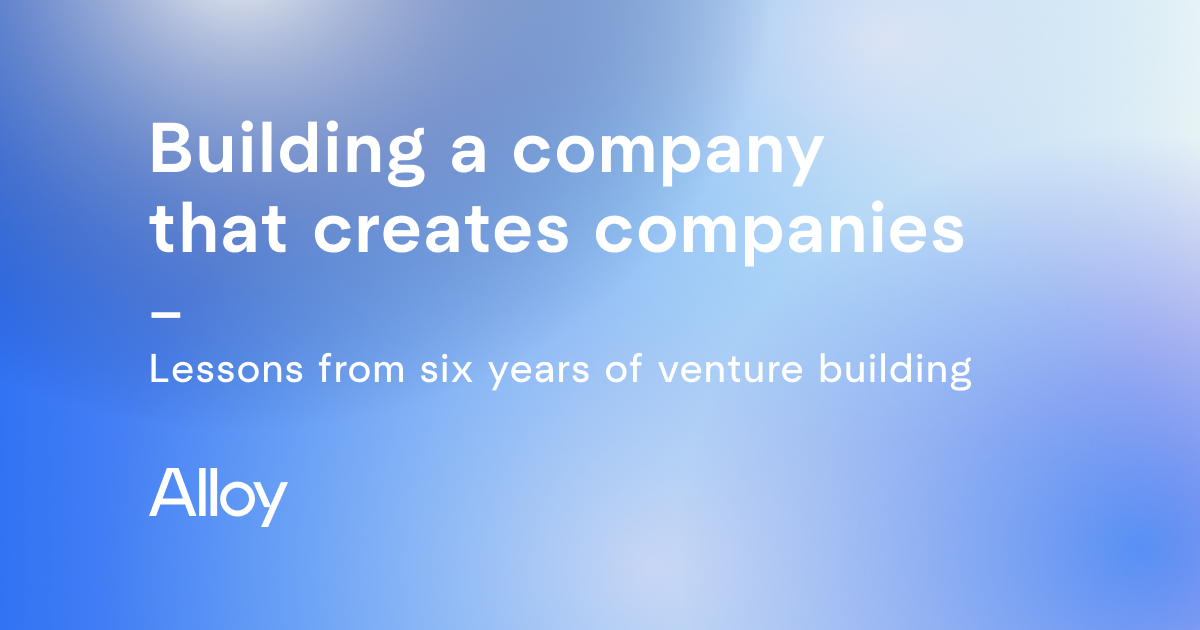
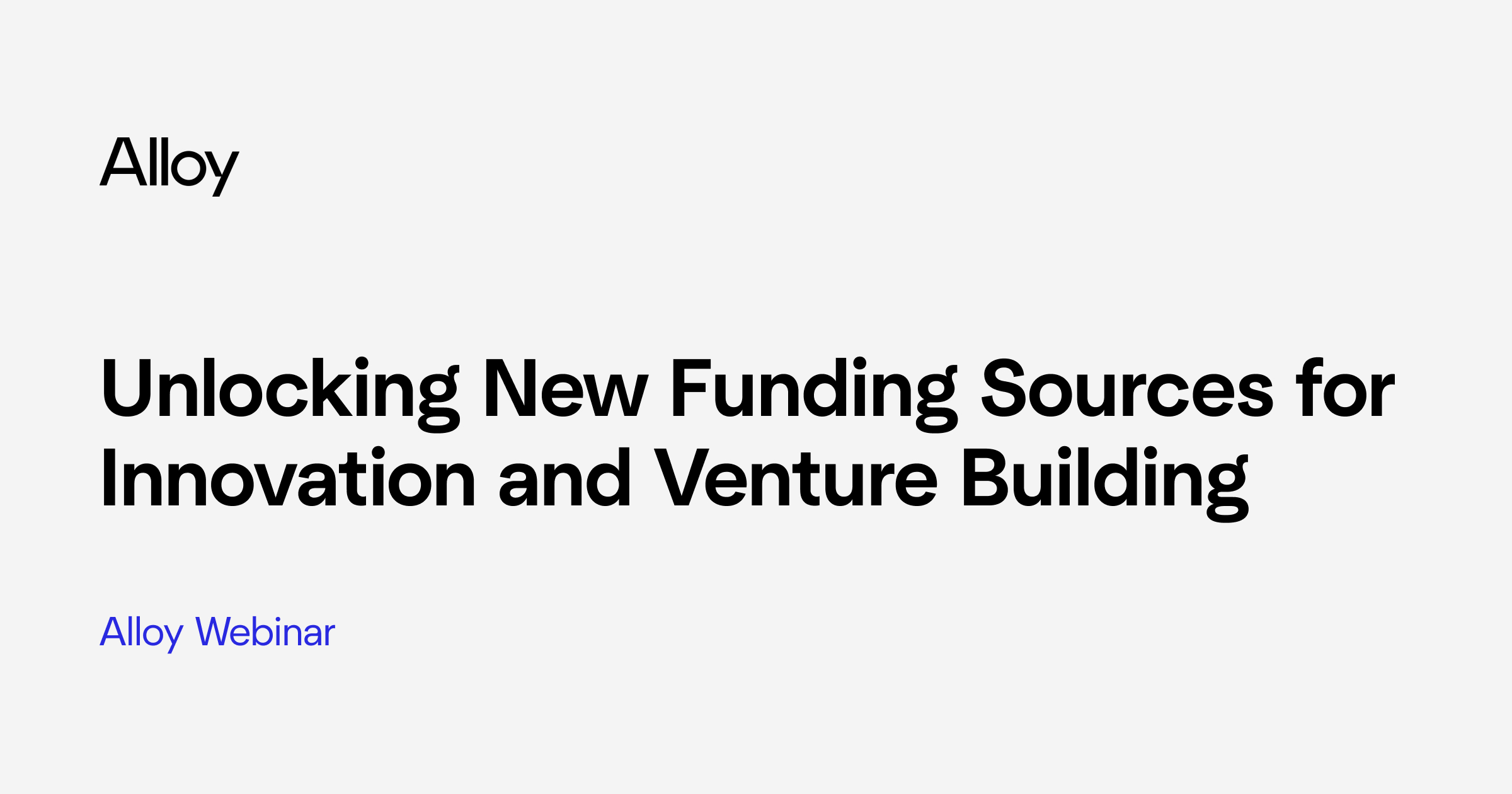

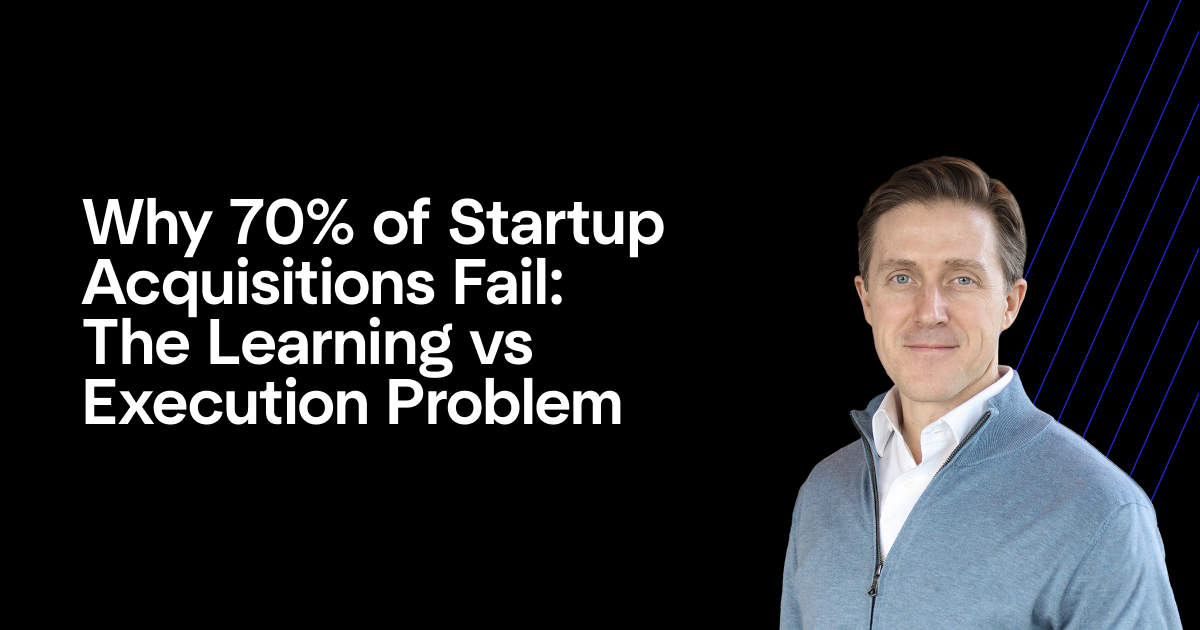







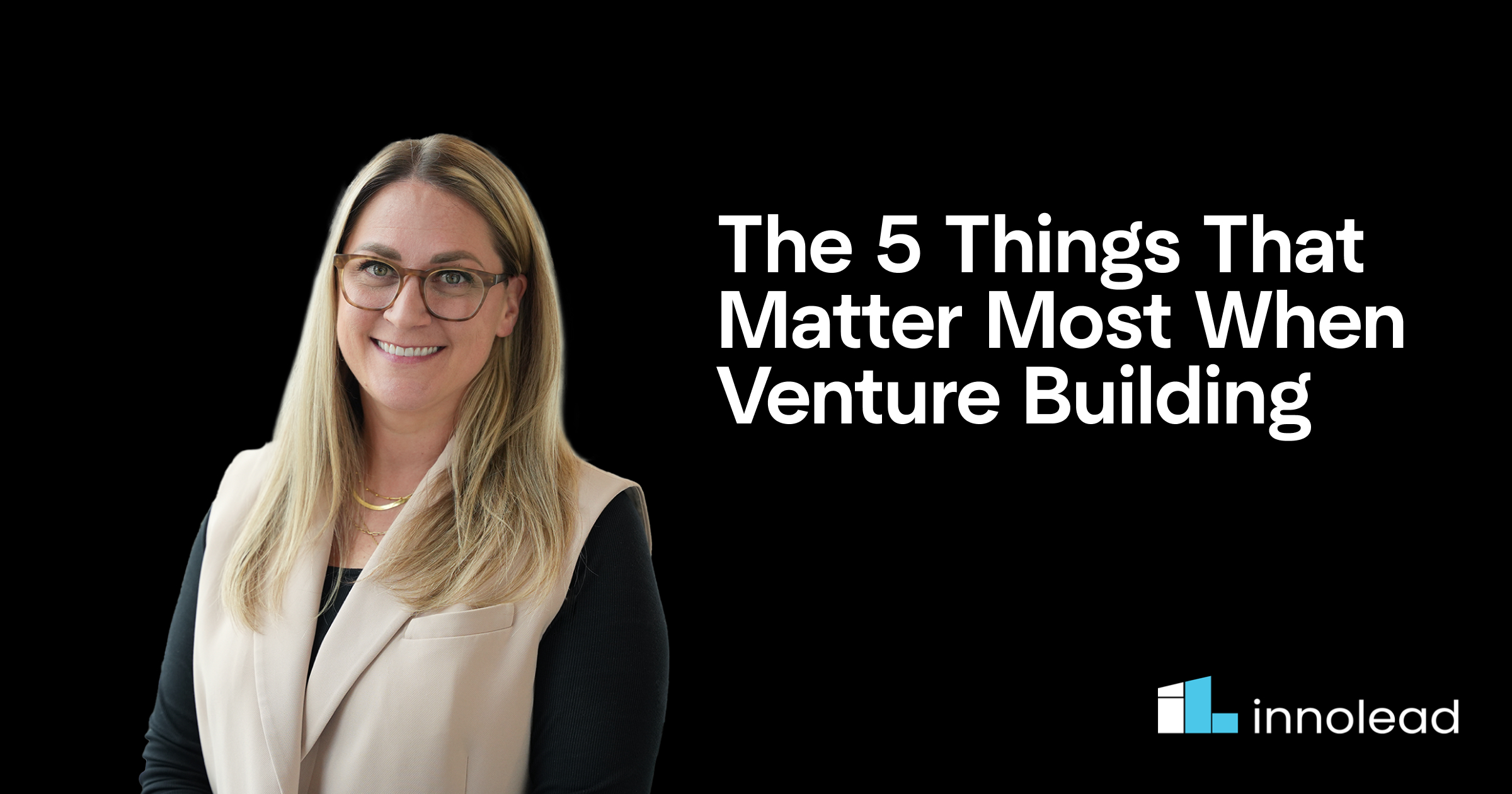

.png)







